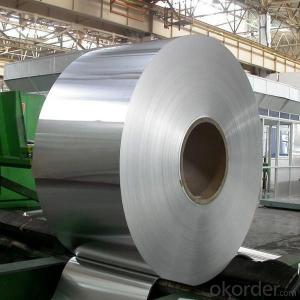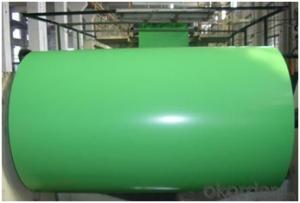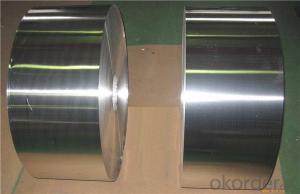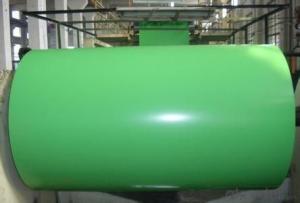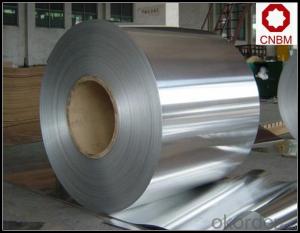Aluminum Coil for Coating ACP Coil 1XXX 3XXX 5XXX
- Loading Port:
- Shanghai
- Payment Terms:
- TT OR LC
- Min Order Qty:
- 5 m.t.
- Supply Capability:
- 1000 m.t./month
OKorder Service Pledge
OKorder Financial Service
You Might Also Like
Item specifice
Aluminum Coil for Coating ACP Coil 1XXX 3XXX 5XXX
1.Structure of Aluminum Coil for Coating ACP Coil 1XXX 3XXX 5XXX
Aluminum Sheets are strengthened and cut from raw materials with different alloys, such as AA5005, AA5052, etc. They are easy for processing in different shapes, good in intensity and can be quickly installed. Aluminium Sheets for Energy Saving Curtain Walls are good in energy saving, weather resistance, fire resistance, easy for maintenance and with many colors.
Aluminium Sheets for Energy Saving Curtain Walls are widely used in construction of metal walls, metal ceilings, car decoration, advertizing panels, etc.
2.Main Features of Aluminum Coil for Coating ACP Coil 1XXX 3XXX 5XXX
•High intensity
•Easy to be processed and shaped
•Weather resistance
•Anti-pollution & environment protection
3. Aluminum Coil for Coating ACP Coil 1XXX 3XXX 5XXX Images
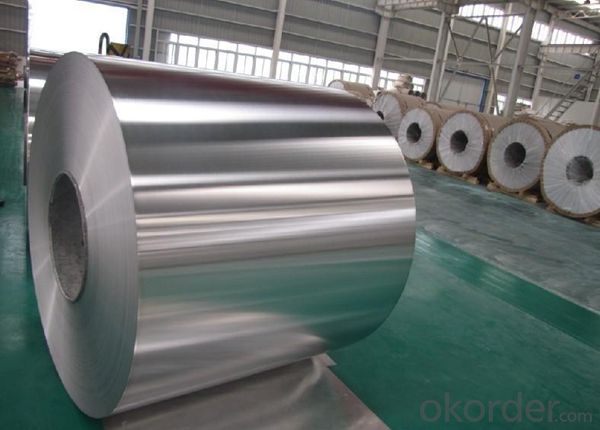
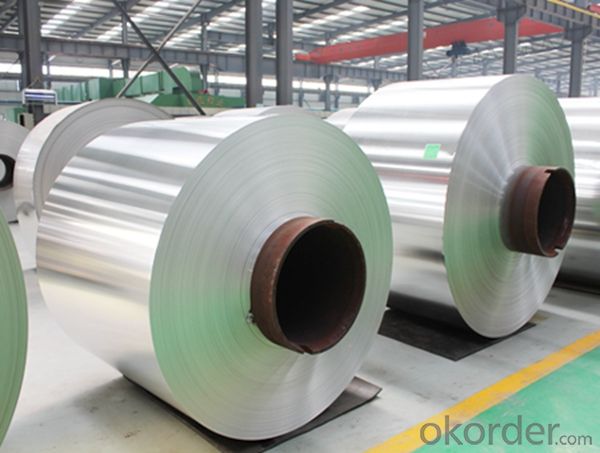
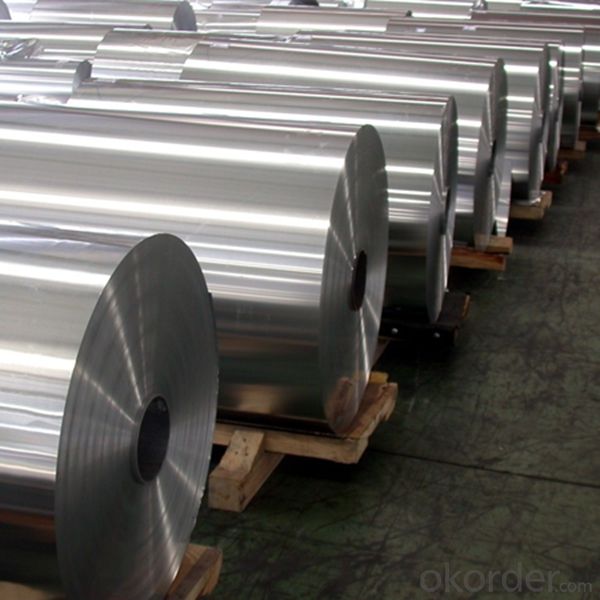
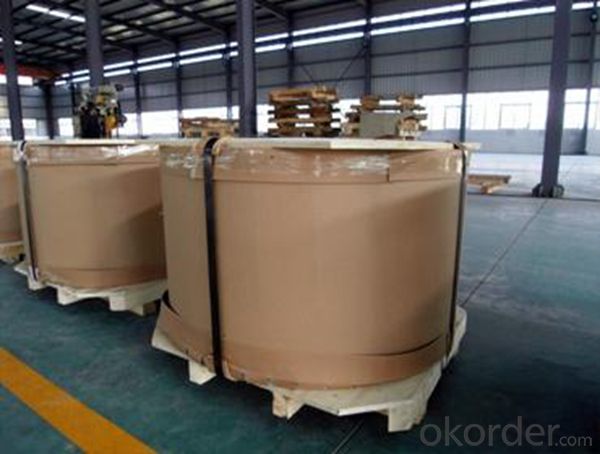
4.Specification of Aluminum Coil for Coating ACP Coil 1XXX 3XXX 5XXX
Alloy Number | AA5XXX 1XXX 3XXX |
Temper | H12, H14, H16, H18, H22, H24, H26, H32, HO, F |
Thickness | 0.1mm – 500mm |
Width | 10mm- 2200mm |
Standard | GB/T3880-2006, ASTM, ISO, EU standard |
5.FAQ of Aluminum Coil for Coating ACP Coil 1XXX 3XXX 5XXX
A.What about inspections to guarantee quality?
For each order for Aluminum Sheets with Mill Finished Surface AA5XXX, we will arrange strict inspection for raw materials, inspection during production and inspection for finished goods.
With requirement of customers, we also can arrange the third party inspection.
B.What about delivery?
We will put order for Aluminum Sheets with Mill Finished Surface AA5XXX in production schedule after order gets confirmed against copy of TT or L/C. Normally it takes about one month for production. Exact shipment schedule is different based on different sizes and quantity.
C.What is the MOQ?
5 tons for each size.
D. Where have you exported aluminium sheets?
We have exported aluminum sheets to many countries. Main markets include South East Asia, Middle East, North America, South America, etc.
- Q:What are the different coil pattern options for aluminum coils?
- The different coil pattern options for aluminum coils include flat, stucco, diamond, and tread patterns.
- Q:i dont want aluminum cookware, but how about a stainless steel set with an aluminum core. Is this the same as aluminum pots and pans? Thanks.
- The aluminum is encased in the stainless steel, usually as a thick disk in the bottom. It is an excellent conductor of heat and holds the heat well once it gets hot. All you see is the stainless, none of the aluminum because it's between two layers of stainless in the bottom of the pots. You are right, you don't want food cooked in straight aluminum, some metal taste can transfer to certain foods. That won't happen with stainless.
- Q:Why 5052 turn black after annealing during the production of aluminum alloy?
- It has been sooted.
- Q:What is the difference between aluminum plate and aluminum coil?
- A sheet is flat, one by one for storage, one for coil material, one roll for storage, but aluminum coil can be leveled by machine, that is aluminum plate.
- Q:I need to make aluminum powder that is fine! I don't have a mill to use or something like that. If I fill literally the whole coffee blender, will that get it fine? I want to make an ok amount of it. I tried to use sand paper which makes it as fine as I want it but takes a while of sanding.
- Trying to make flash powder? Be careful! Use a belt sander or a circular saw with a grinding blade on it.
- Q:Can aluminum coils be used in telecommunications infrastructure?
- Telecommunications infrastructure can employ aluminum coils as they possess several advantages. Firstly, aluminum, being a lightweight and durable material, finds extensive use in various industries, including telecommunications. Its cost-effectiveness, when compared to metals like copper, makes it a preferred choice for many companies in this sector. Moreover, the lighter weight of aluminum coils facilitates easier handling and installation, resulting in reduced labor and transportation costs. Additionally, aluminum's excellent electrical conductivity makes it suitable for transmitting data signals in telecommunications networks. By effectively carrying electrical current, aluminum coils ensure efficient data transmission without compromising quality. Consequently, reliable and high-speed communication over long distances becomes possible. Another advantage of incorporating aluminum coils in telecommunications infrastructure lies in their resistance to corrosion. When exposed to air, aluminum naturally forms a protective oxide layer, preventing rusting and corrosion. This resistance enhances the longevity and durability of the infrastructure, thereby reducing maintenance and replacement expenses over time. Nevertheless, it is crucial to acknowledge that aluminum possesses lower tensile strength than copper. Therefore, the infrastructure's structural integrity must be adequately considered and engineered when employing aluminum coils. Additionally, specific connectors and compatible hardware may be necessary. In conclusion, the use of aluminum coils in telecommunications infrastructure is highly effective due to their cost-effectiveness, lightweight nature, electrical conductivity, and corrosion resistance. Proper planning and design are imperative to ensure the successful implementation of aluminum coils in telecommunications networks.
- Q:Are there any restrictions on the coil thickness of aluminum coils?
- Yes, there are typically restrictions on the coil thickness of aluminum coils. The specific restrictions may vary depending on the intended application and industry standards. Generally, the thickness of aluminum coils is limited by the capabilities of the manufacturing equipment and the desired final product. Thinner coils are often preferred for applications that require flexibility, such as in the manufacturing of foils or flexible packaging materials. On the other hand, thicker coils are commonly used in industries like construction or automotive, where strength and durability are important factors. Additionally, the thickness of aluminum coils may be restricted by the availability and cost of raw materials. It is important for manufacturers to adhere to these restrictions to ensure the quality and performance of the final product.
- Q:Can aluminum coils be used for seamless gutters?
- Yes, aluminum coils can be used for seamless gutters. Aluminum is a popular choice for seamless gutter installations due to its durability, lightweight nature, and resistance to corrosion. The coils can be easily shaped and formed to create a seamless gutter system that effectively directs rainwater away from the building.
- Q:How do aluminum coils contribute to the insulation properties of products?
- Aluminum coils play a crucial role in enhancing the insulation properties of various products. The use of aluminum coils in insulation systems improves thermal efficiency, minimizes heat transfer, and reduces energy consumption. Firstly, aluminum is an excellent conductor of heat and electricity. This characteristic allows aluminum coils to effectively distribute and dissipate heat, preventing the transfer of thermal energy from one side of the product to another. By doing so, aluminum coils act as a barrier, minimizing heat loss or gain, which is essential for maintaining optimal temperatures in different applications. Secondly, aluminum coils have a low thermal conductivity. This means that they are not easily affected by temperature changes and do not readily transfer heat. As a result, products containing aluminum coils can better resist external temperature fluctuations, providing better insulation against hot or cold conditions. Furthermore, aluminum coils are lightweight, making them easy to handle and install in various products. This lightweight property is advantageous as it does not add significant weight to the overall structure, making it suitable for industries that require portable or lightweight insulation solutions. Moreover, aluminum is highly resistant to corrosion, making it ideal for applications in humid or corrosive environments. This durability ensures that the insulation properties of products containing aluminum coils remain effective over an extended period, without deteriorating or compromising performance. Additionally, aluminum is a recyclable material, which aligns with sustainable practices. Using aluminum coils in insulation products promotes environmental consciousness by reducing waste and energy consumption associated with manufacturing new materials. In summary, aluminum coils contribute to the insulation properties of products by efficiently distributing and dissipating heat, minimizing heat transfer, and resisting temperature fluctuations. Their lightweight nature, durability, and recyclability further enhance their effectiveness as an insulation component. Overall, aluminum coils are a valuable addition to insulation systems, improving thermal efficiency and reducing energy consumption.
- Q:What is the modulus of elasticity of aluminum coils?
- Young's modulus, which is also referred to as the modulus of elasticity, quantifies the stiffness and resistance to deformation of aluminum coils when subjected to an external force. Typically, the modulus of elasticity for aluminum coils falls around 70 GPa (gigapascals) or 10 million psi (pounds per square inch). However, this value can slightly fluctuate depending on the particular alloy and temper of the aluminum utilized in the coils. Consequently, the modulus of elasticity plays a crucial role in determining the durability and malleability of aluminum coils, making it a significant consideration in various sectors such as construction, automotive, and aerospace industries.
1. Manufacturer Overview |
|
|---|---|
| Location | |
| Year Established | |
| Annual Output Value | |
| Main Markets | |
| Company Certifications | |
2. Manufacturer Certificates |
|
|---|---|
| a) Certification Name | |
| Range | |
| Reference | |
| Validity Period | |
3. Manufacturer Capability |
|
|---|---|
| a)Trade Capacity | |
| Nearest Port | |
| Export Percentage | |
| No.of Employees in Trade Department | |
| Language Spoken: | |
| b)Factory Information | |
| Factory Size: | |
| No. of Production Lines | |
| Contract Manufacturing | |
| Product Price Range | |
Send your message to us
Aluminum Coil for Coating ACP Coil 1XXX 3XXX 5XXX
- Loading Port:
- Shanghai
- Payment Terms:
- TT OR LC
- Min Order Qty:
- 5 m.t.
- Supply Capability:
- 1000 m.t./month
OKorder Service Pledge
OKorder Financial Service
Similar products
New products
Hot products
Hot Searches
Related keywords
